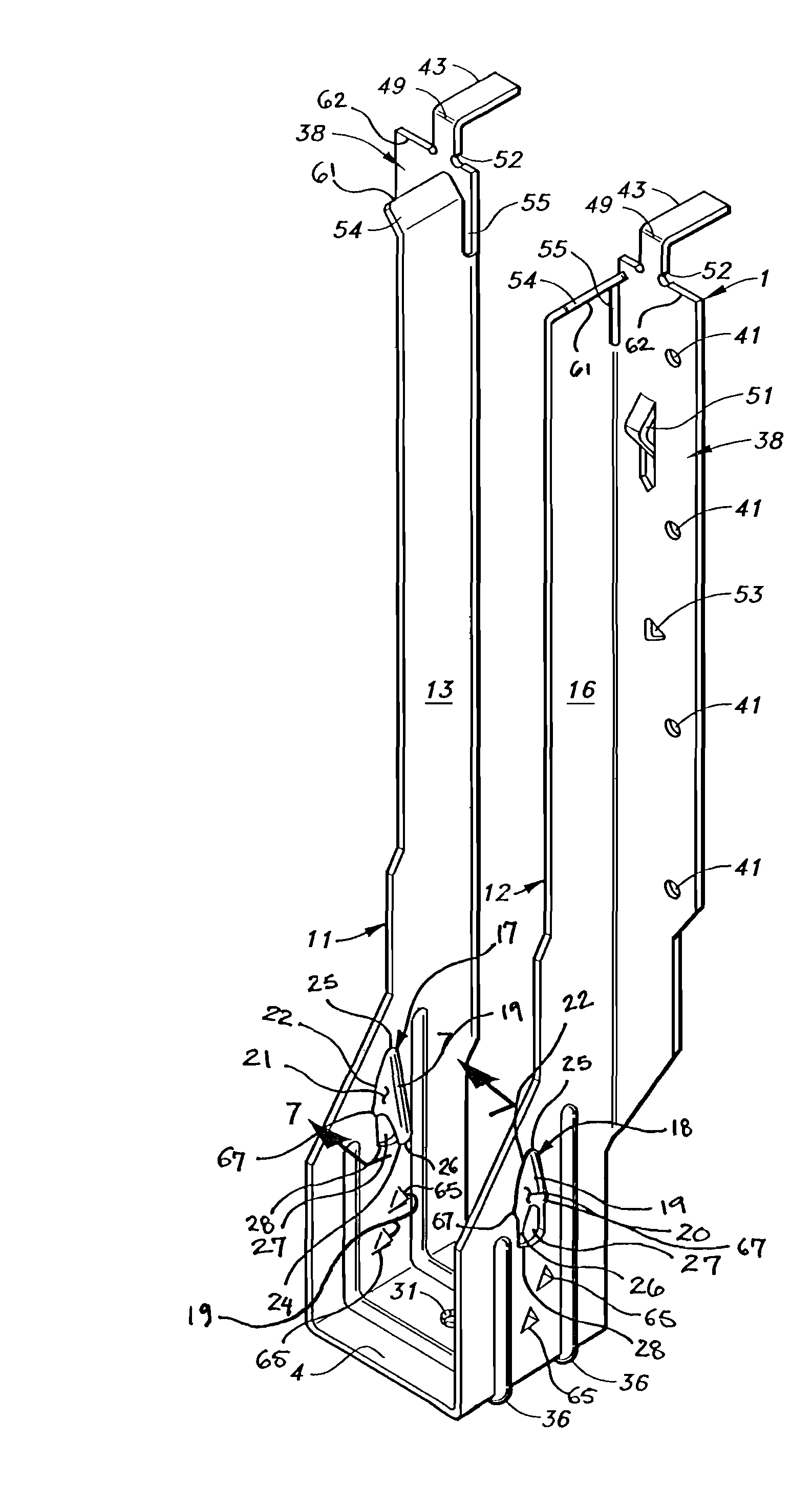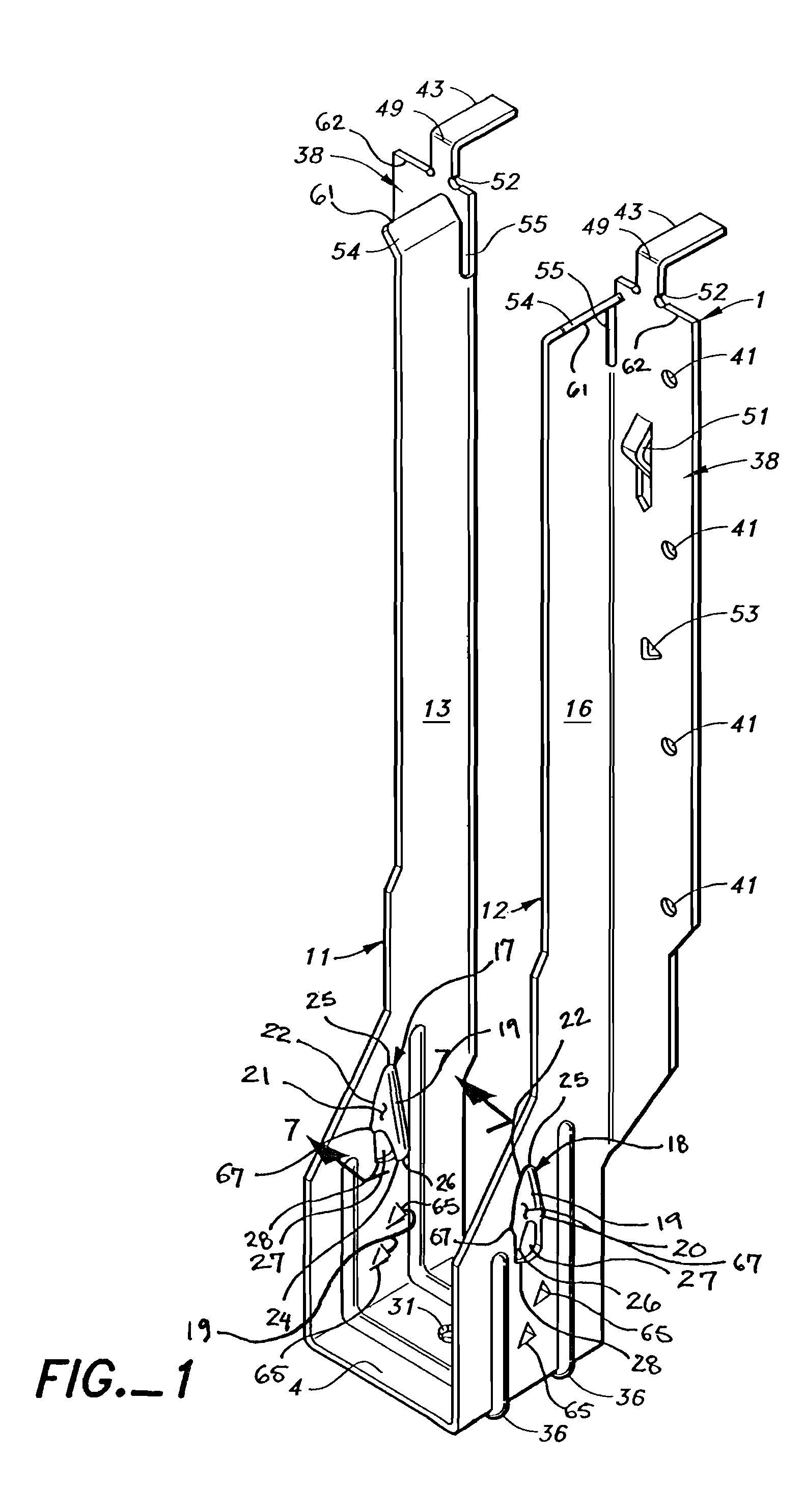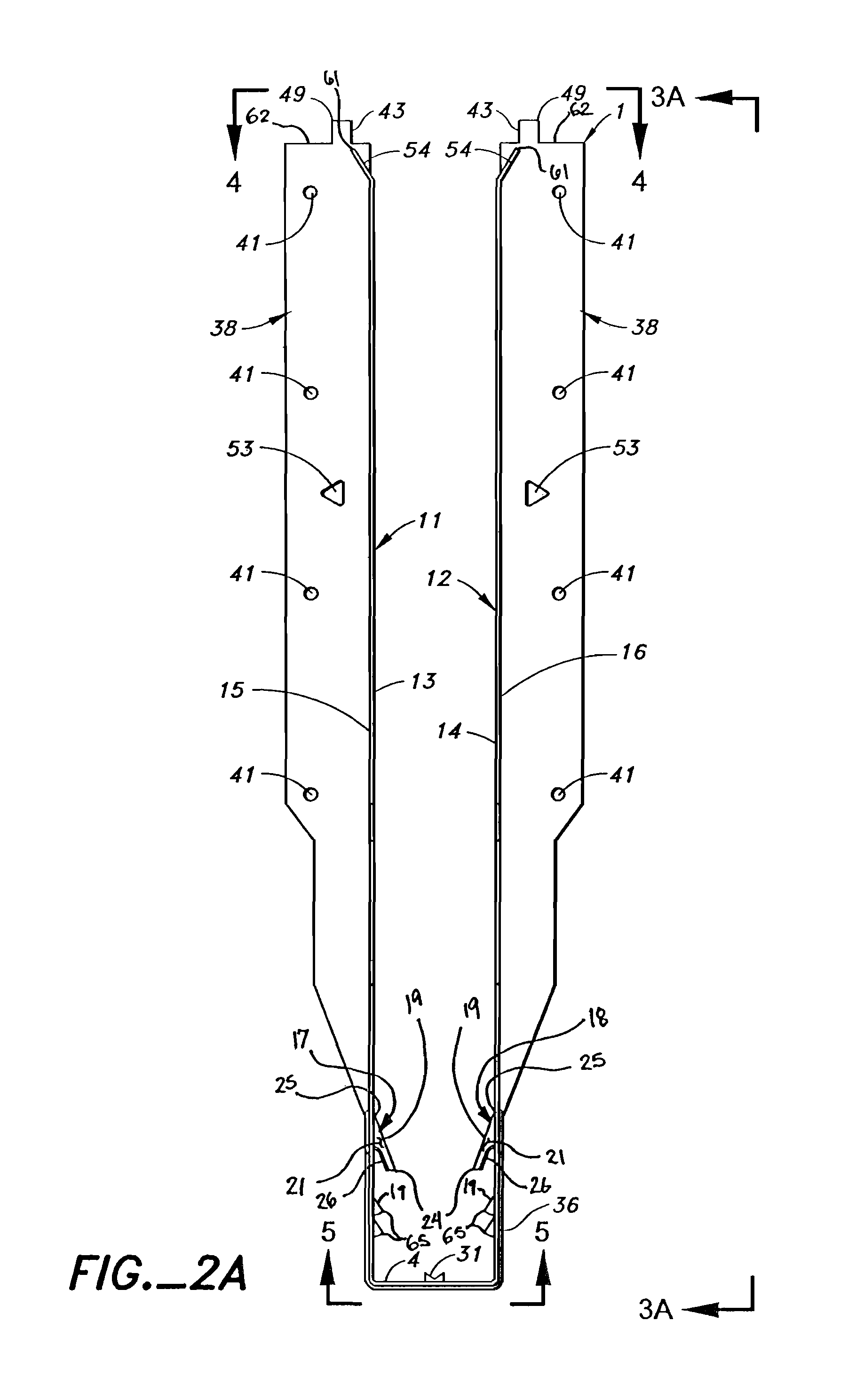Hanger with gripping tabs
a technology of joist hangers and tabs, which is applied in the direction of building reinforcements, construction, buildings, etc., can solve the problems of difficult to detect missing joist nails through inspection, time-consuming, and difficult to connect i-joists to hangers with nails without splitting or damaging the chords of i-joists, etc., to achieve the effect of providing design load uplift resistan
- Summary
- Abstract
- Description
- Claims
- Application Information
AI Technical Summary
Benefits of technology
Problems solved by technology
Method used
Image
Examples
Embodiment Construction
[0058]As shown in FIG. 6, the present invention relates to a joist hanger 1 that attaches an I-Joist 2 or other member to a support member or header 3.
[0059]The joist hanger 1 has a seat 4 for receiving a portion of the bottom surface 5 of the I-Joist 2. The I-Joist 2 is made up of top and bottom chords 6 and 7 and a web 8 between them. The bottom chord 6 has a bottom surface 5, a top surface 9 and side walls 10.
[0060]As shown in FIG. 1, the joist hanger 1 is also made with first and second opposed side walls 11 and 12, each of the side walls 11 or 12 being attached to the seat 4, and each of the side walls 11 or 12 having an inwardly facing side surface 13 or 14 and an outwardly facing side surface 15 or 16 with the inwardly facing side surfaces 13 and 14 facing each other.
[0061]As shown in FIG. 2A, each of the side walls 11 or 12 also has one or more inwardly projecting guides 17 or 18 projecting inwardly towards the other opposed side wall 11 or 12.
[0062]As shown in FIG. 2B, in t...
PUM
 Login to View More
Login to View More Abstract
Description
Claims
Application Information
 Login to View More
Login to View More - R&D
- Intellectual Property
- Life Sciences
- Materials
- Tech Scout
- Unparalleled Data Quality
- Higher Quality Content
- 60% Fewer Hallucinations
Browse by: Latest US Patents, China's latest patents, Technical Efficacy Thesaurus, Application Domain, Technology Topic, Popular Technical Reports.
© 2025 PatSnap. All rights reserved.Legal|Privacy policy|Modern Slavery Act Transparency Statement|Sitemap|About US| Contact US: help@patsnap.com



